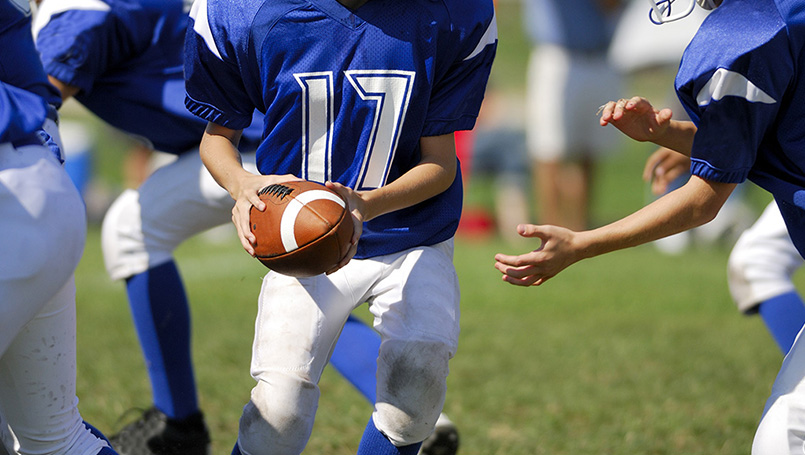
Many sports present a risk of head injury. Spotting a problem early—and providing quick treatment—helps ensure the best possible outcome.
For many sports-minded individuals, the fall season turns all weekend thoughts toward football.
Friday high school games. Saturday college games. Sunday pro games.
It’s also a season that brings concussion injuries sharply into focus, given football’s reputation for high-impact injuries.
But Matthew Axtman, DO, with orthopedic sports medicine at Corewell Health, wants to set the record straight: Football isn’t the only contact sport with concussion risk.
Soccer, lacrosse, hockey, cheerleading and other sports carry a high risk, too.
In fact, the potential for concussion is ever-present, whether in sports or in daily living. Simply avoiding contact sports doesn’t guarantee injury prevention.
“You can’t live your life being worried about getting injured in sports, specifically a concussion,” Dr. Axtman said. “You could stay away from sports your whole life, but you could fall on the sidewalk, fall down the stairs or stand up and hit your head on a cabinet and get a concussion.”
Act quickly, but cautiously
A concussion is a brain injury. The brain sits inside the skull. And normally, the communication pathways are very regulated.
When a person gets hit in the head, however, it causes mass confusion with how the brain functions. The pathways become chaotic, Dr. Axtman said.
It’s critical to know how to identify a concussion early, recognizing the signs and symptoms after an injury.
Some symptoms include headaches, blurry vision, feeling sick to your stomach and dizziness, Dr. Axtman said. When those symptoms arise, the individual should meet with an athletic trainer or physician to undergo further evaluation.
If the injury appears to be a concussion, trainers and physicians need to act quickly to minimize brain damage.
Once a health team member examines an injured person for obvious injuries—cuts, bruises, etc.—they’ll ask simple questions to test the individual’s thought process and memory.
Questions may include: What day is it? What activity is being conducted? What’s the score of the game?
“If there is a concussion or any suspicion that the player sustained a concussion, they cannot go back into the game,” Dr. Axtman said. “If there is any doubt, you must err on the side of caution. When in doubt, sit them out.”
As much as an athlete may want to get back in the game, that would be dangerous, Dr. Axtman said.
“You only have one brain and you don’t want to do anything that will expose it to continued hits that could end up causing long-term neurological damage and problems,” he said. “This can include chronic headaches and memory loss issues.”
Careful participation
While people shouldn’t take unwarranted chances, Dr. Axtman noted that a common myth—that you’re done with sports after three concussions—is not true.
“It all depends upon the individual and on a case-by-case basis that is made by a physician knowledgeable in concussion treatment,” he said.
There is really no way to prevent all concussions in sports, Dr. Axtman said.
In football, for example, modern helmets and rule changes concerning tackling techniques may help reduce concussions—but there are no guarantees.
“There are better helmets than others that can help, but it’s not going to be the be-all-and-end-all (solution),” he said. “There will never be 100 percent resolution of concussions in sports.”
So, should people participate in sports?
“Absolutely,” Dr. Axtman said. “Anyone that can participate in a sport or exercise activity should participate. With exercise comes significant health benefits that outweigh the risks of injury and, specifically, concussion.”
He stressed that anyone concerned about sports participation should have a discussion with a physician.
